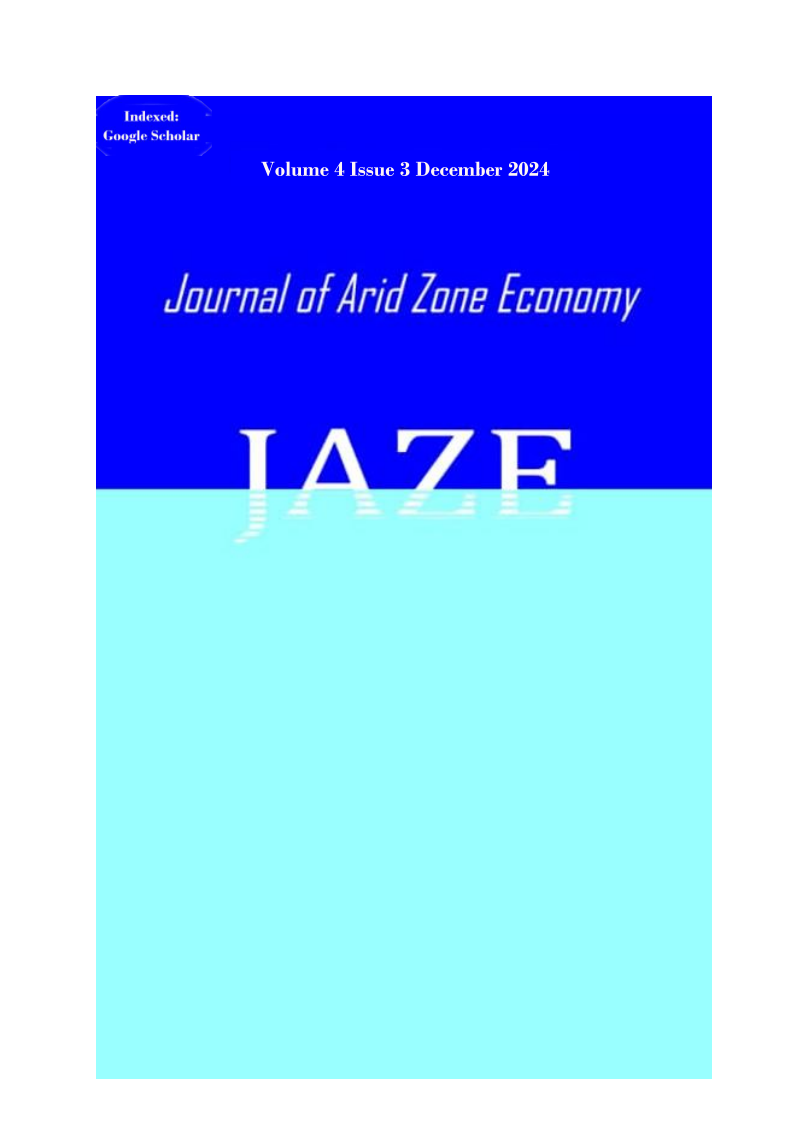Impact of Non-Oil Tax Revenue on Economic Growth in Nigeria
Keywords:
Non-oil Tax Revenue, Economic Growth, Gross Domestic Product, Macroeconomic Stability, Voluntary ComplianceAbstract
This study examines the impact of non-oil tax revenue on economic
growth in Nigeria. The main objective of the study is to examine the
relationship between non-oil tax revenue (CIT, EDT and VAT) and
economic growth in Nigeria for the period 1990 - 2022. Using annual
time series data, the study adopted the Johansen cointegration model and
the Error Correction Model (ECM) to investigate for the existence or
otherwise of long run and short run relationships between the
explanatory variables (CIT, EDT and VAT) and economic growth. The
result of the study showed that non-oil tax revenue have impact on
economic growth in Nigeria in the review period even though the impact
is not the same for all categories of non-oil tax revenue. Specifically, the
results indicate that there is a long run positive and significant
relationship between the independent variable (LCIT, LEDT and LVAT)
and the dependent variable (LGDP). However, the study revealed that
there is a negative and significant relationship between LCIT, LEDT and
LGDP in the short run. The study suggests that the Government should
improve the general business environment by formulating and
implementing policies that foster the growth and development of the
private sector of the economy. This will broaden the industrial base of
the economy, widen the tax base and improve non-oil tax revenue that is
needed for economic growth. Additionally, the legislature should exercise
their oversight functions effectively and ensure that taxes collected are
used judiciously.

Downloads
Published
Issue
Section
License
Copyright (c) 2024 Journal of Arid Zone Economy

This work is licensed under a Creative Commons Attribution 4.0 International License.

